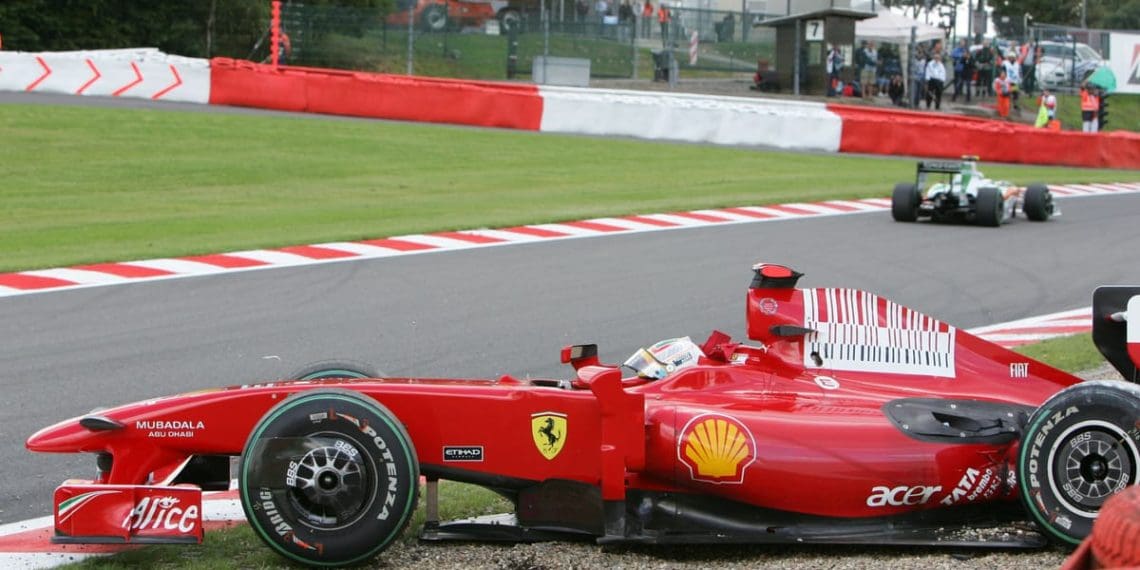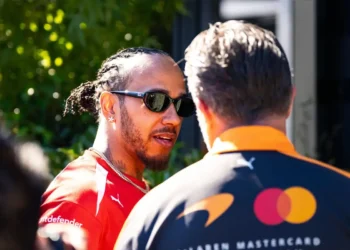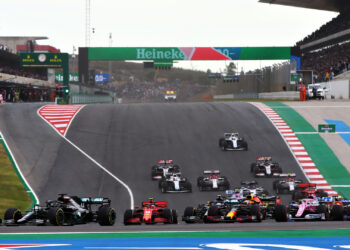More than 1,100 Formula 1 Grand Prix events have taken place in the 74 years of the championship’s existence. However, there have been some peculiar occurrences that happened only once. Ollie Bearman, an 18-year-old driver who races for Ferrari, can be counted among these unique instances. But there are 10 even stranger things that happened only once in the history of F1 – and it is unlikely that they will happen again.
One of these unique moments occurred nine years ago this week, when Max Verstappen made his F1 debut at the 2015 Australian Grand Prix for the then Toro Rosso team. At the age of 17 years and 166 days, he became the youngest driver to start a race. Although he retired from that race, two weeks later in Malaysia, he became the youngest driver to finish a race and score points, finishing in seventh place. Verstappen is very likely to hold onto these records, as the FIA introduced a minimum age of 18 for a driver to have a racing super license in 2016.
Only a fraction of the nearly 800 drivers who have started a F1 Grand Prix have scored points. Luca Badoer is an exception to this rule. Although he is best known for his disastrous two-race stint with Ferrari in 2009, Badoer had a career dating back to the mid-1990s. He came close to scoring points at the 1999 European Grand Prix, but was prevented due to a gearbox failure. Despite his long career as a Ferrari test driver, Badoer’s record of 50 races without scoring points is unlikely to be surpassed.
Bad weather often posed a threat to the completion or start of a grand prix, but only once resulted in no racing laps being completed. This occurred during the infamous 2021 Belgian Grand Prix. The race was postponed due to persistent rain and when the cars finally hit the track, they could only complete three laps behind the safety car before the red flag was shown. The result was declared based on those three laps, with Max Verstappen declared the winner and George Russell securing his first F1 podium. This race led F1 to review its procedures for shortened races.
In the past, pre-qualifying sessions took place on Friday mornings, and some drivers could not participate in free practice due to their poor equipment. Gabriele Tarquini holds the record for the most failed pre-qualifying attempts for an F1 event, with 25 attempts. One driver, Aguri Suzuki, failed to qualify for all 16 races of the 1989 season, driving for the struggling Zakspeed team. However, Suzuki’s luck improved in 1990 when he made it to the podium at the Japanese Grand Prix.
Narain Karthikeyan had a brief F1 career but has the distinction of being the only driver to finish in 24th place. This occurred at the 2011 European Grand Prix in Valencia, where he trailed his teammate and was overtaken three times. Unless F1 reverses its decision to reject new teams, Karthikeyan’s record is unlikely to be challenged.
Markus Winkelhock had a memorable debut in F1 when he led the 2007 European Grand Prix. He was called in as a substitute for just one race and took the lead due to an inspired strategy. Although he eventually retired from the race, Winkelhock’s performance in his only F1 start will be remembered forever.
Teo Fabi achieved the unusual feat of securing three pole positions in F1, but never leading a single lap in a grand prix. Despite starting on pole, various issues prevented him from leading a lap in each of those races. Fabi’s pole positions were hindered by bad luck and mechanical failures, preventing him from converting them into race leadership.
The 2005 United States Grand Prix saw Michelin tire problems result in unusual circumstances. Due to safety concerns, cars equipped with Michelin tires were unable to start the race, leaving only the drivers with Bridgestone tires on the grid. This led to a highly unusual and controversial race that caused lasting damage to the reputation of F1 in the United States.
Although shortened races with half points have occurred in F1, double points were awarded only once. In an attempt to create an exciting title decider, F1 introduced double points for the final race of the season in Abu Dhabi. However, this rule had no impact on the championship outcome, and F1 quickly abandoned it due to widespread criticism.
Prohibitions of racing are rare in F1, but Jacques Villeneuve’s experience at the 1997 Japanese Grand Prix is unique. Despite receiving a one-race ban before the race, Villeneuve still competed and finished fifth. However, Williams withdrew their appeal, resulting in Villeneuve’s exclusion from the race. This controversial decision ended up playing a role in Villeneuve’s championship victory in the following race in Jerez.
© 2024
The new football championship is causing controversy among fans. The most popular teams in the country have joined forces to form an independent league, leaving the current league in the background. Fans are divided on this decision, with some supporting the initiative and others believing it will harm the sport.
The new league promises to bring more excitement and competition to national football. With high-level teams competing against each other, games are expected to be more intense and unpredictable. Additionally, it is expected that the new league will attract more sponsors and generate more revenue for the clubs.
However, there are those who are concerned about the negative impact this change may have on football. They argue that the new league only favors the richer and more powerful teams, leaving smaller and lesser-known clubs at a disadvantage. Furthermore, some fear that competitiveness will decrease, as the stronger teams may dominate the league.
Regardless of the differing opinions, one thing is certain: football is undergoing a significant transformation. The next few months will be crucial in determining the success or failure of this new endeavor. Fans are eager to see how everything unfolds and hope that the sport continues to be a national passion.










